********** XKCD **********
return to top
Terror Bird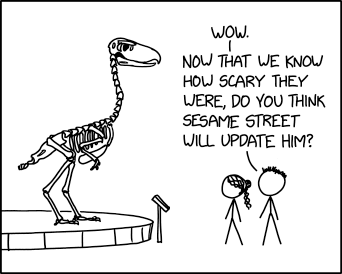
Match ID: 0 Score: 1000.00 source: xkcd.com
qualifiers: 1000.00 xkcd
SawStart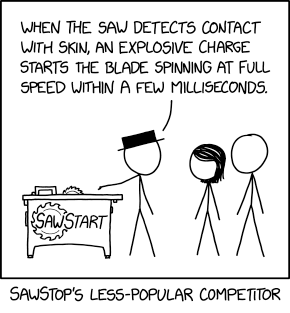
Match ID: 1 Score: 1000.00 source: xkcd.com
qualifiers: 1000.00 xkcd
Rock Identification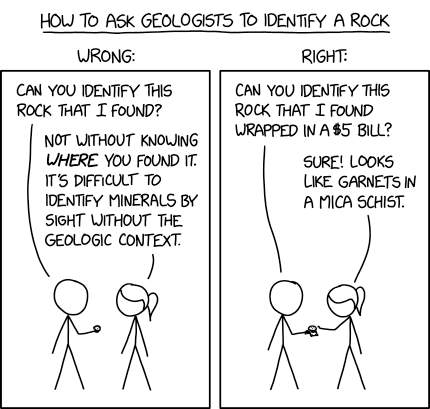
Match ID: 2 Score: 1000.00 source: xkcd.com
qualifiers: 1000.00 xkcd
Orogeny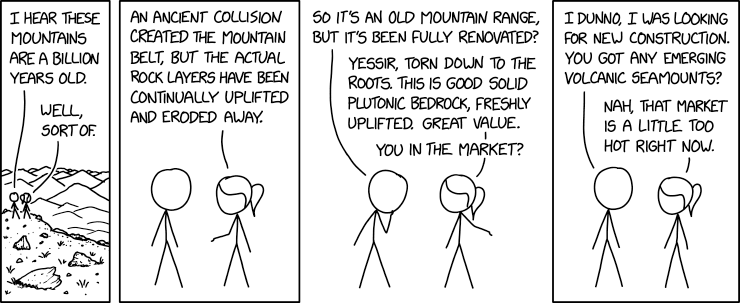
Match ID: 3 Score: 1000.00 source: xkcd.com
qualifiers: 1000.00 xkcd
Filter efficiency 99.584 (4 matches/961 results)
********** TRAVEL **********
return to top
Airlines warned Heathrow about power supply risks days before outage, MPs told
Wed, 02 Apr 2025 10:20:28 GMT
Concerns about cable theft raised with airport before substation fire but Heathrow chief defends handling of incident
Airlines warned Heathrow about risks to its power supply days before the airport was shut down by a substation fire, a Commons committee has been told.
Heathrow’s chief executive, Thomas Woldbye, apologised for the disruption, which affected more than 200,000 passengers on Friday 21 March, but defended the decision to close as he said staying open was potentially “disastrous”.
Continue reading...Insomnia is not a grievance made by difficult women. It’s a life-threatening condition that often stems from a physical issue many doctors refuse to see
In February, I taught memoir writing at a conference in Mexico where the faculty is traditionally put up with local hosts. Mine was especially communicative in the months leading up to my arrival, going out of his way to indicate affordable rooftop bars, the finest locations to view murals, and general best practices for the city he’d adopted as his own.
So when I told my host that I have chronic insomnia, I felt he’d take me seriously, given how generous he’d been in his emails. “I’ve traveled a lot throughout Mexico,” I wrote him. “And the one thing I can’t deal with as an insomniac is roosters.”
Continue reading...A holiday park on the lesser-known Côte Orientale offers lower prices, activities for all ages, and secluded sandy beaches
I had held out as long as I could, but there was no getting out of it. The catcalls were rising; the baying, cackling audience of under-11s intoxicated by a combination of ice-cream sugar rushes and my obvious, clammy fear. It was day 14 of a two-week summer holiday, and our final afternoon in blissful 30C Corsican sunshine. I just needed one more chapter, lounging with my book, soaking in the last of the bone-warming sun slowly edging down towards the island’s dramatic mountainous spine.
But my calculating offspring had not forgotten ill-fated promises made on a previous evening, probably a little too deep into the second carafe. I was probably caught off-guard at Barny’s, a sensational sushi restaurant in the town of Ghisonaccia, enjoying our best meal of the holiday. They know when my defences are down; when I’m fully relaxed into holiday “yes” mode, and prime for being taken advantage of.
Continue reading...Florida prosecutors say Michelle Taylor used gasoline to set a fire that killed her son. Top forensic chemists say they’re wrong.
The post The Arson Evidence Doesn’t Hold Up. Florida Is About to Convict Her for Murder Anyway. appeared first on The Intercept.
We asked the experts about keeping luggage as light as possible (and still being ready for anything)
• The best travel-size toiletries for your next trip
Packing is a fine art. No one wants to lug heavy bags around transport hubs or arrive at the other end to a chaotically stuffed bag full of creased clothes. But we all have our “essentials” to cram in. For some, that’ll be a full skincare routine or a semblance of a wardrobe; for others, it’ll be sports equipment (though you really should leave the weights at home). So whether you’re flying on an airline offering ever-dwindling luggage limits, trying to cram a car for the whole crew, or rushing between trains with a backpack, it really does pay to travel light.
But what are the secrets to lightening the load without compromising? To find out, we’ve asked world travellers for all their best hacks and buys. Whether it’s the travel writer who’s been solo backpacking for more than 20 years or the hotel designer who has to dress smartly while zipping to locations across Europe, our globe-trotters shared their tips for everything from the ultimate wear-everywhere shoes to the best tech cheats.
Continue reading...Searches of phones and other electronics are on the rise for those entering the U.S. Take these steps to help secure your devices.
The post Crossing the U.S. Border? Here’s How to Protect Yourself appeared first on The Intercept.
Trump wants Gaza for real estate deals, but Mike Huckabee’s all-inclusive Israel tours erase Palestinians for a higher purpose.
The post Trump’s Pick for Israel Ambassador Leads Tours That Leave Out Palestinians — and Promote End of Days Theology appeared first on The Intercept.
How reporters with the Gaza Project investigate the killing and targeting of Palestinian journalists.
The post Journalists Under Fire in Gaza, Israel’s Deadly War on Reporters appeared first on The Intercept.
Investigative journalists working as part of the Gaza Project used reporting, geolocation, and forensic analysis to reconstruct the shooting of Fadi al-Wahidi.
The post Gaza Journalist Fadi al-Wahidi Avoided Israel’s “Red” Zone. Israel Shot Him Anyway. appeared first on The Intercept.
From biking adventures to city breaks, get inspiration for your next break – whether in the UK or further afield – with twice-weekly emails from the Guardian’s travel editors. You’ll also receive handpicked offers from Guardian Holidays.
From biking adventures to city breaks, get inspiration for your next break – whether in the UK or further afield – with twice-weekly emails from the Guardian’s travel editors.
You’ll also receive handpicked offers from Guardian Holidays.
Continue reading...Two rice dishes from the Gulf: bottom-of-the-pot chicken and rice, AKA fega’ata, and a side or main of tomato, potato and saffron rice
The Gulf countries are known for their elaborate rice dishes, many of them inverted, so the bottom becomes the top and the top the bottom. Some of the best and most traditional ones are cooked over charcoal and palm wood in deep underground fire pits, so the smokiness takes over every grain. That isn’t practical in most homes, but I like to think we can still produce the most wonderful rice dishes with just simple ingredients and a lot of love.
Continue reading...Hurricane Helene proved a hard truth: a freezer of seeds is the literal version of putting all your eggs in one basket
About a month after Hurricane Helene devastated western North Carolina last fall, Roger Wynn and I met in an Asheville, North Carolina, supermarket parking lot. He’d driven two hours from Little Mountain, South Carolina, where the passing storm had also left its destructive mark.
“When the power finally came back on,” Wynn said, “two of my freezers didn’t work.” Wynn was worried not about spoiled food inside, but his seed collection. On that autumn day, in an act of forced downsizing and seed philanthropy, Wynn handed over two boxes filled with seeds. He wanted me, as founder of the non-profit Utopian Seed Project, to share the seeds with farmers across the region. The boxes contained a trove of Appalachian varieties: speckled field peas, white mountain half-runner beans, purple-podded bush beans and lots of butterbeans.
Continue reading...While anyone can roast a potato, achieving perfectly crisp-skinned, buttery-fleshed deliciousness requires a little more thought …
When I pitched the idea for today’s column, my editor’s response was underwhelming to say the least. “Is that even a recipe?” he asked, which is exactly the attitude that inspired me in the first place. Often the simplest dishes feel in the least need of an actual recipe, yet surely I can’t be alone in thinking that the leathery, greasy roast new potatoes that turn up so often on tables at this time of year show some room for improvement.
I used to be of Jane Grigson’s opinion that “new potatoes should either be steamed or put into boiling water with sprigs of mint” – after all, they’re so good, and their season so short, from April to August, why meddle with perfection? But, having recently enjoyed crisp-skinned, buttery- fleshed beauties from a restaurant oven, I’d like to add them to my repertoire, too. While anyone can roast a potato, doing it proper justice clearly requires a little more thought.
Continue reading...To prevent a catastrophic failure of the drugs modern medicine relies on, look to animal farming in middle-income countries
If the antibiotics we use to treat infections ever stopped working, the consequences would be catastrophic. It is estimated that the use of antibiotics adds about 20 years of life expectancy for every person worldwide (on average). As the King’s Fund put it, if we lose antibiotics, “we would lose modern medicine as we know it”. Doctors, public health experts and governments take the threat of antimicrobial resistance (AMR) very seriously, yet the problem appears to be getting worse.
A report from the National Audit Office in February finds that out of five domestic targets set in 2019 to tackle AMR, only one has been met – to reduce antibiotic use in food-producing animals. Others, such as the target to reduce drug-resistant infections in humans by 10%, haven’t made much progress; in fact, these infections have actually increased by 13% since 2018.
Prof Devi Sridhar is chair of global public health at the University of Edinburgh, and the author of How Not to Die (Too Soon)
Continue reading...Doctors helping with aftermath of disaster and UN special rapporteur say aid is disappearing or being blocked in some areas
Myanmar’s military is facing criticism over continued airstrikes and claims it is blocking aid to earthquake survivors, as international agencies urged “unfettered access” to humanitarian aid in the conflict-riven nation.
The 7.7-magnitude earthquake that hit central Myanmar on Friday has caused widespread destruction, killing more than 2,700 people and leaving affected areas in dire need of basic necessities such as food and water.
Continue reading...While other diet fads come and go, the ultra low carbohydrate Keto diet seems to endure. But as scientists begin to understand how the diet works, more is also being discovered about its risks. To find out more, Madeleine Finlay speaks to Javier Gonzalez, professor in the department of health at the University of Bath, with a special interest in personal nutrition. He explains how the diet works, what it could be doing to our bodies and what could really be behind the weight loss people experience while on it
Support the Guardian: theguardian.com/sciencepod
Continue reading...This week: your March favourites; gifts for new mums; and how to make your smartphone last longer
Never has the term “fool’s spring” been more fitting. When the sun came out early in the month, many of us began to prepare for the summer that felt just around the corner. Hundreds of you, like me, bought the most genius overnight bag for the weekends away that were surely about to happen, and the perfect nail colour for the new season.
But let’s be real: it’s not summer yet. A fact evidenced by just how many of you were also buying practical raincoats, stay-in-all-day satin pyjamas and – less glamorously – microwave rice cookers. Here are the Filter recommendations you loved the most this month.
Continue reading...Whose brand tastes like a tropical ambrosia, and whose tastes like soapy gunk? Restaurateur Ravinder Bhogal dives in …
• The best rice cookers for gloriously fluffy grains at home
Coconut milk is always found front and centre in my pantry because it is a cornerstone of so much of my cooking. I buy it in bulk and rely on it to bring a voluptuous, fragrant, dairy-free creaminess to so many of my favourite dishes, from curries and dals to soups and rice dishes. It’s also indispensable for puddings for vegan friends, and for my sweet-toothed, lactose-intolerant husband. It mellows out spices and pulls a dish together, adding a silkiness to sauces and a sweet, nutty richness to cakes, batters and vegan custards.
I appreciate the convenience of the canned stuff because making coconut milk from scratch, as my mother used to do when I was growing up in Kenya, is laborious: a mature brown coconut has to be broken, its flesh grated, then soaked in hot water, before being strained and squeezed several times through a cheesecloth.
Continue reading...How reporters with the Gaza Project investigate the killing and targeting of Palestinian journalists.
The post Journalists Under Fire in Gaza, Israel’s Deadly War on Reporters appeared first on The Intercept.
A weekly email from Yotam Ottolenghi, Meera Sodha, Felicity Cloake and Rachel Roddy, featuring the latest recipes and seasonal eating ideas
Each week we’ll send you an exclusive newsletter from our star food writers. We’ll also send you the latest recipes from Yotam Ottolenghi, Nigel Slater, Meera Sodha and all our star cooks, stand-out food features and seasonal eating inspiration, plus restaurant reviews from Grace Dent and Jay Rayner.
Sign up below to start receiving the best of our culinary journalism in one mouth-watering weekly email.
Continue reading...Plastics are everywhere, but their smallest fragments – nanoplastics – are making their way into the deepest parts of our bodies, including our brains and breast milk.
Scientists have now captured the first visual evidence of these particles inside human cells, raising urgent questions about their impact on our health. From the food we eat to the air we breathe, how are nanoplastics infiltrating our systems?
Neelam Tailor looks into the invisible invasion happening inside us all
Continue reading...Style, with substance: what’s really trending this week, a roundup of the best fashion journalism and your wardrobe dilemmas solved, direct to your inbox every Thursday
Style, with substance: what’s really trending this week, a roundup of the best fashion journalism and your wardrobe dilemmas solved, delivered straight to your inbox every Thursday
Explore all our newsletters: whether you love film, football, fashion or food, we’ve got something for you
Continue reading...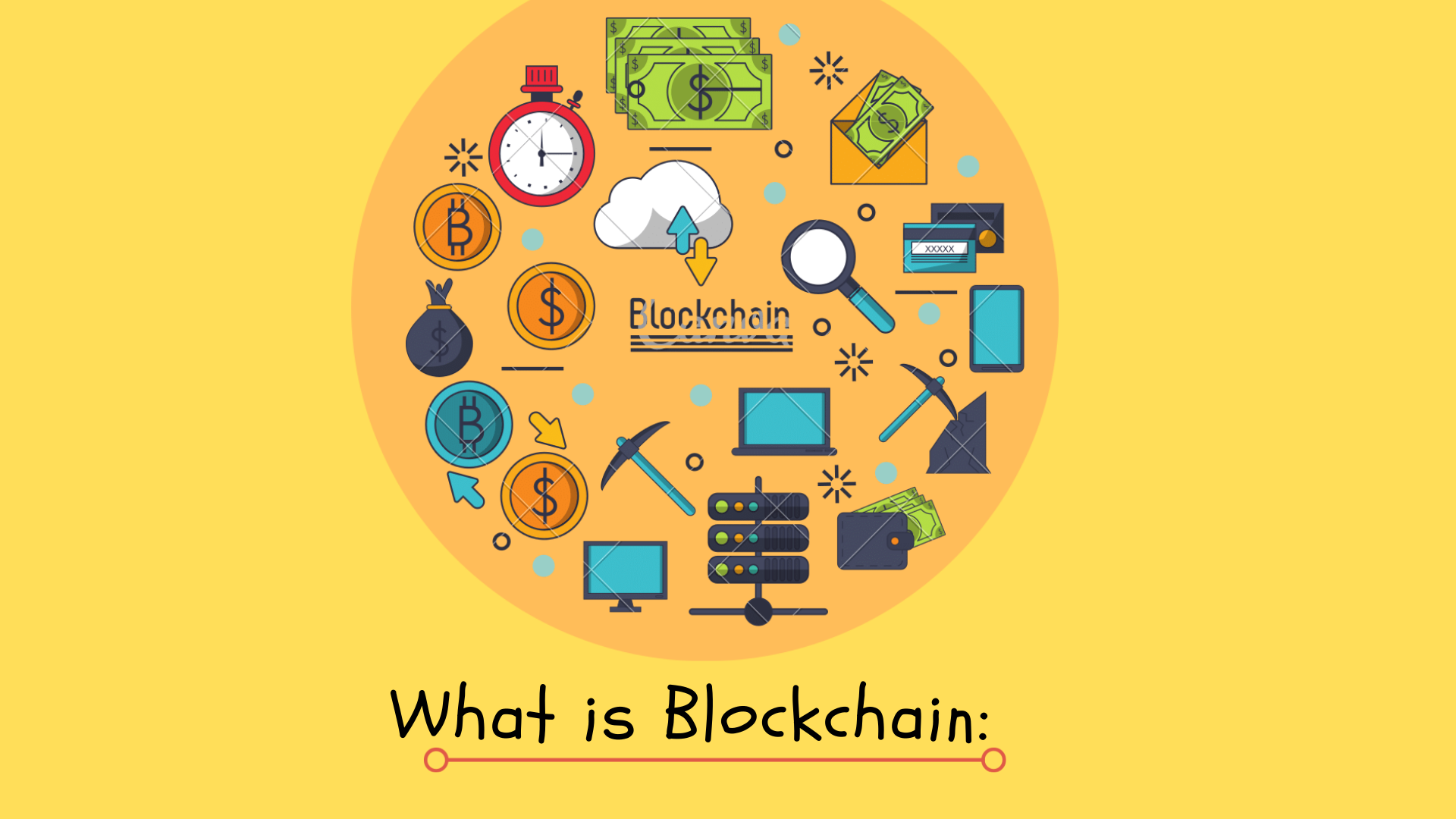 |
Imagine a world in which you can do transactions and many other things without having to give your personal information. A world in which you don’t need to rely on banks or governments anymore. Sounds amazing, right? That’s exactly what blockchain technology allows us to do.
It’s like your computer’s hard drive. blockchain is a technology that lets you store data in digital blocks, which are connected together like links in a chain.
Blockchain technology was originally invented in 1991 by two mathematicians, Stuart Haber and W. Scot Stornetta. They first proposed the system to ensure that timestamps could not be tampered with.
A few years later, in 1998, software developer Nick Szabo proposed using a similar kind of technology to secure a digital payments system he called “Bit Gold.” However, this innovation was not adopted until Satoshi Nakamoto claimed to have invented the first Blockchain and Bitcoin.
A blockchain is a distributed database shared between the nodes of a computer network. It saves information in digital format. Many people first heard of blockchain technology when they started to look up information about bitcoin.
Blockchain is used in cryptocurrency systems to ensure secure, decentralized records of transactions.
Blockchain allowed people to guarantee the fidelity and security of a record of data without the need for a third party to ensure accuracy.
To understand how a blockchain works, Consider these basic steps:
Let’s get to know more about the blockchain.
Blockchain records digital information and distributes it across the network without changing it. The information is distributed among many users and stored in an immutable, permanent ledger that can't be changed or destroyed. That's why blockchain is also called "Distributed Ledger Technology" or DLT.
Here’s how it works:
And that’s the beauty of it! The process may seem complicated, but it’s done in minutes with modern technology. And because technology is advancing rapidly, I expect things to move even more quickly than ever.
Even though blockchain is integral to cryptocurrency, it has other applications. For example, blockchain can be used for storing reliable data about transactions. Many people confuse blockchain with cryptocurrencies like bitcoin and ethereum.
Blockchain already being adopted by some big-name companies, such as Walmart, AIG, Siemens, Pfizer, and Unilever. For example, IBM's Food Trust uses blockchain to track food's journey before reaching its final destination.
Although some of you may consider this practice excessive, food suppliers and manufacturers adhere to the policy of tracing their products because bacteria such as E. coli and Salmonella have been found in packaged foods. In addition, there have been isolated cases where dangerous allergens such as peanuts have accidentally been introduced into certain products.
Tracing and identifying the sources of an outbreak is a challenging task that can take months or years. Thanks to the Blockchain, however, companies now know exactly where their food has been—so they can trace its location and prevent future outbreaks.
Blockchain technology allows systems to react much faster in the event of a hazard. It also has many other uses in the modern world.
Blockchain technology is safe, even if it’s public. People can access the technology using an internet connection.
Have you ever been in a situation where you had all your data stored at one place and that one secure place got compromised? Wouldn't it be great if there was a way to prevent your data from leaking out even when the security of your storage systems is compromised?
Blockchain technology provides a way of avoiding this situation by using multiple computers at different locations to store information about transactions. If one computer experiences problems with a transaction, it will not affect the other nodes.
Instead, other nodes will use the correct information to cross-reference your incorrect node. This is called “Decentralization,” meaning all the information is stored in multiple places.
Blockchain guarantees your data's authenticity—not just its accuracy, but also its irreversibility. It can also be used to store data that are difficult to register, like legal contracts, state identifications, or a company's product inventory.
Blockchain has many advantages and disadvantages.
I’ll answer the most frequently asked questions about blockchain in this section.
Blockchain is not a cryptocurrency but a technology that makes cryptocurrencies possible. It's a digital ledger that records every transaction seamlessly.
Yes, blockchain can be theoretically hacked, but it is a complicated task to be achieved. A network of users constantly reviews it, which makes hacking the blockchain difficult.
Coinbase Global is currently the biggest blockchain company in the world. The company runs a commendable infrastructure, services, and technology for the digital currency economy.
Blockchain is a decentralized technology. It’s a chain of distributed ledgers connected with nodes. Each node can be any electronic device. Thus, one owns blockhain.
Bitcoin is a cryptocurrency, which is powered by Blockchain technology while Blockchain is a distributed ledger of cryptocurrency
Generally a database is a collection of data which can be stored and organized using a database management system. The people who have access to the database can view or edit the information stored there. The client-server network architecture is used to implement databases. whereas a blockchain is a growing list of records, called blocks, stored in a distributed system. Each block contains a cryptographic hash of the previous block, timestamp and transaction information. Modification of data is not allowed due to the design of the blockchain. The technology allows decentralized control and eliminates risks of data modification by other parties.
Blockchain has a wide spectrum of applications and, over the next 5-10 years, we will likely see it being integrated into all sorts of industries. From finance to healthcare, blockchain could revolutionize the way we store and share data. Although there is some hesitation to adopt blockchain systems right now, that won't be the case in 2022-2023 (and even less so in 2026). Once people become more comfortable with the technology and understand how it can work for them, owners, CEOs and entrepreneurs alike will be quick to leverage blockchain technology for their own gain. Hope you like this article if you have any question let me know in the comments section
FOLLOW US ON TWITTER
RSS Rabbit links users to publicly available RSS entries.
Vet every link before clicking! The creators accept no responsibility for the contents of these entries.
Relevant
Fresh
Convenient
Agile
We're not prepared to take user feedback yet. Check back soon!